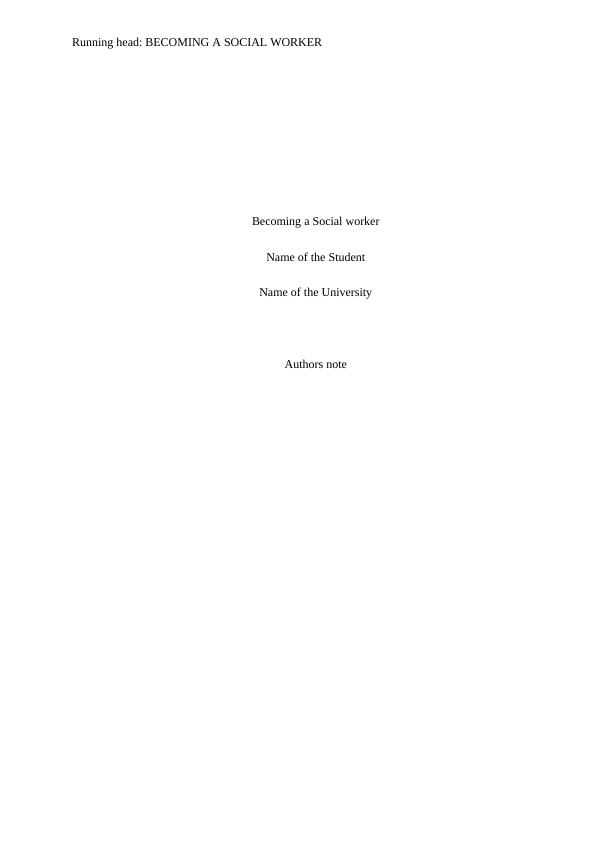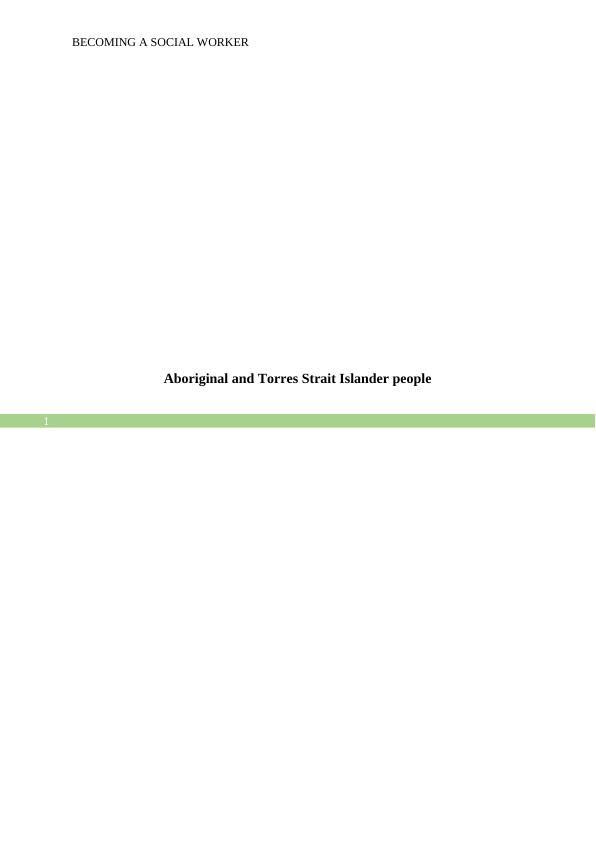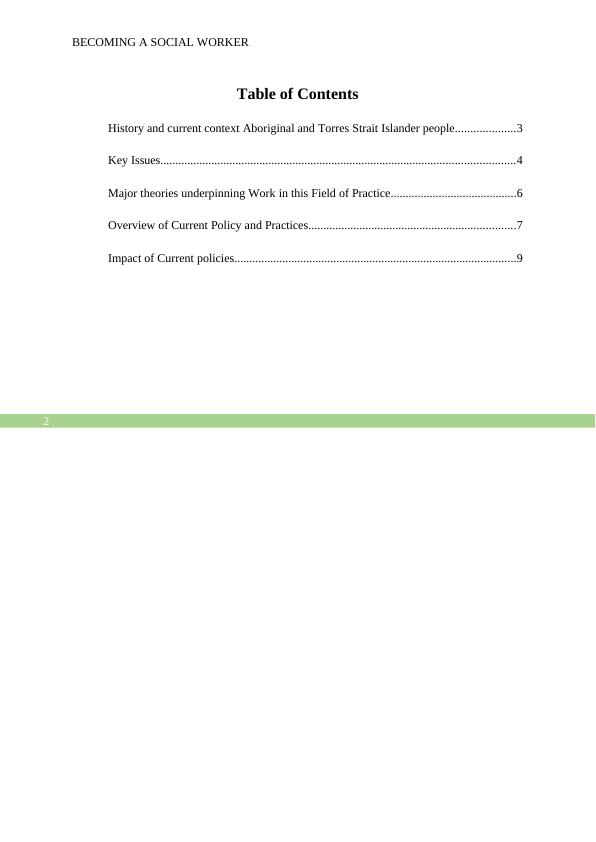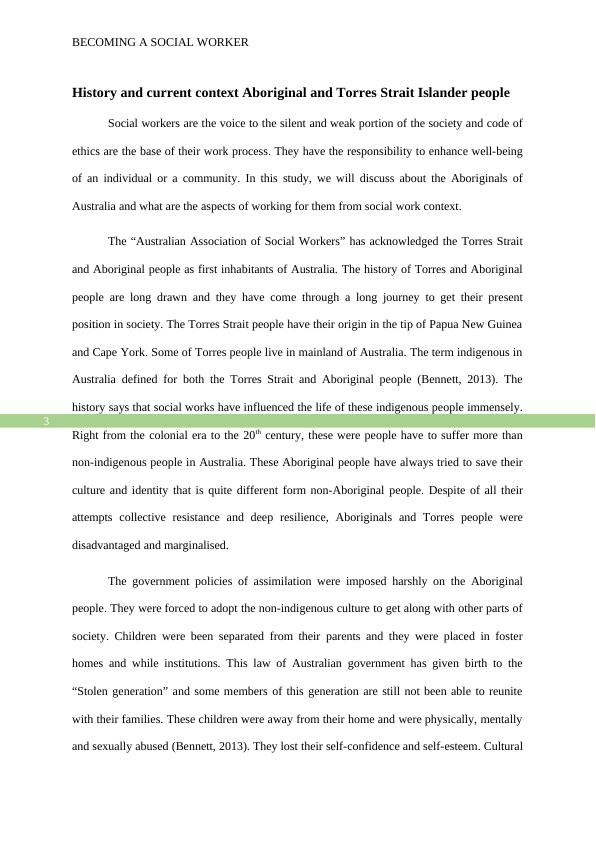Becoming A Social Worker | Assessment
Added on 2022-10-04
14 Pages3074 Words36 Views
End of preview
Want to access all the pages? Upload your documents or become a member.
Culture and Mental Health: Engaging with Aboriginal and Torres Strait Islander Communities
|5
|1174
|349
Discrimination Against Aboriginals: Social Work Theory and Practice
|11
|3235
|85
Indigenous and Non-Indigenous Health Issues in Australia
|11
|3054
|415
Role of Social Workers in Aboriginal Community
|8
|1536
|185
Two Historical Issues Impacting Aboriginal and/or Torres Strait Islander People
|4
|1145
|133
Community Development | Assignment
|6
|1370
|46




